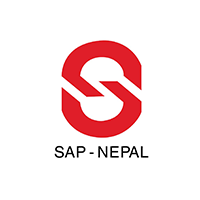Supporting organization: SNV- Nepal
Partner Organization : SAP-Nepal
Project Duration : 1 september 2014 – 31 December 2014
Project Area : 11 Ilakas of Dailekh District
South Asia Partnership (SAP) Nepal in partnership with SNV, Federation of Water and Sanitation Users Groups in Nepal (FEDWASUN) and Sector Efficiency Improvement Unit (SEIU) was assigned to develop Social Accountability tools, pilot the process and make recommendations for up-scaling that would contribute to sustained functionality of rural water supply systems in Nepal. Capacity enhancement of the concerned stakeholders on different dimensions and tools of Social Accountability (SA) was a key aspect for enabling these stakeholders to adopt the SA tools namely Community Score Card (CSC), Public Hearing and Social Audit. Thus, specific objectives of the assignment were focused on designing and piloting Social Accountability tools that contribute to sustained functionality of rural water supply systems with provisions of capacity enhancement on the selected SA tools coupled with evaluation measures to develop recommendations for application of these tools at broader scale and sharing the experiences with diverse stakeholders. The assignment was implemented at full-fledged scale in Dailekh and only with district events in Jumla.



Piloting of these proven social accountability tools focusing more on functionality of drinking water supply services would guide other stakeholders in adopting the similar approaches for ensuring sustainability of their services. In this regard, knowledge sharing event planned at central level would bring other experiences of other stakeholders in using different social accountability tools in WASH sector for further refinement of these learning and approaches.
Broader partnership with diverse stakeholders created solidified efforts for increasing social accountability that contributed in increased functionality of the selected 11 schemes spread out in 11 illakas. Thus, major achievements of the interventions were:
Increased clarity on issues of functionality that helped in preparation of contextualized SA tools ready for scaling up
Increased social accountability of WASH stakeholders including users, user committees, service providers and government stakeholders
Increased number of water schemes registered with FEDWASUN and District Water Resource Committee
It was realized that these SA tools should focus more on consensus building than confrontation. Continuous technical support and monitoring was highly beneficial in bringing transformation changes in the area of rural water supply functionality.

